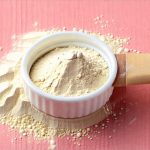Probiotics have exploded in popularity as people seek ways to support their gut health and overall well-being. Marketed for everything from improved digestion to boosted immunity, these beneficial bacteria are now commonplace in many diets. However, a surprisingly common experience when starting probiotics is an increase in gas, bloating, and even changes in bowel habits. This can be alarming or uncomfortable enough to cause some people to discontinue use altogether, missing out on potential benefits. Understanding why this happens isn’t about diagnosing a problem, but rather recognizing a normal (though sometimes inconvenient) shift occurring within the gut microbiome as it adapts to new inhabitants.
It’s crucial to remember that everyone’s gut is unique – a complex ecosystem shaped by genetics, diet, lifestyle, and previous antibiotic use. Introducing probiotics is essentially changing the landscape of this internal environment. This disruption, while ultimately aiming for balance, can temporarily lead to increased fermentation processes as different bacterial strains interact and compete. The gas you experience isn’t necessarily a sign that something is wrong; it’s often simply a byproduct of these microbial interactions. It usually subsides as your gut adjusts, but knowing what’s happening under the surface can help you navigate this initial phase more comfortably. You might also want to explore why chewing more slowly to aid digestion.
The Gut Microbiome Shift and Gas Production
The primary reason for increased gas when starting probiotics lies in the dynamics of the gut microbiome itself. Your digestive system naturally contains a vast community of bacteria – both beneficial and potentially harmful. When you introduce probiotic strains, you’re adding new players to this existing ecosystem. These newcomers need to establish themselves, which involves competing with already present microbes for resources (like food) and space. This competition can lead to shifts in the types and amounts of gases produced during digestion. Different bacterial species produce different gases; some create more hydrogen, methane, or carbon dioxide than others.
Furthermore, probiotics often work by fermenting fibers that your gut bacteria haven’t been able to fully break down before. While this is a positive outcome – meaning you’re now extracting more nutrients from your food – fermentation inherently produces gas as a byproduct. Think of it like sourdough bread: the bubbles are evidence of active fermentation. This increased fermentation, combined with the changing microbial landscape, explains why many people experience bloating and flatulence initially. The body hasn’t yet adapted to efficiently process these newly produced gases.
It’s also important to consider that some individuals have a naturally lower baseline diversity in their gut microbiome. For them, introducing even a few probiotic strains can represent a significant change, triggering a more noticeable response. Others may have imbalances pre-existing conditions – like Small Intestinal Bacterial Overgrowth (SIBO) – where the introduction of probiotics could exacerbate symptoms temporarily before ultimately contributing to long-term balance. Again, this isn’t necessarily an indication to stop; it’s simply a sign that your gut is responding and adjusting. If reflux is also part of the picture, consider looking into why people with desk jobs might be more prone to it.
Understanding Different Probiotic Strains
Not all probiotics are created equal, and different strains can elicit different responses in the gut. Lactobacillus and Bifidobacterium are two of the most common genera found in probiotic supplements, but within each genus exist numerous species and even further sub-strains. Some strains are known to be more gas-producing than others. For example, certain Bifidobacterium strains might lead to increased hydrogen production during fermentation.
Choosing a probiotic with strains specifically tailored to your needs – or starting with a lower dose of a broad-spectrum probiotic – can potentially minimize initial discomfort. It’s worth researching the specific strains included in a supplement and understanding their known effects. However, it’s important not to self-diagnose; if you have concerns about SIBO or other gut issues, consult with a healthcare professional for personalized recommendations. Understanding GERD and muscle tension can also provide valuable insight.
The Role of Dietary Fiber
Dietary fiber plays a crucial role in both probiotic effectiveness and gas production. Probiotics need prebiotics – types of fiber that act as food for the beneficial bacteria – to thrive. However, increased fiber intake, particularly if your gut isn’t accustomed to it, can also contribute to more fermentation and thus, more gas. This is especially true when you combine a higher fiber diet with the introduction of probiotics.
- Gradually increase your fiber intake alongside probiotic supplementation.
- Focus on diverse sources of fiber, including fruits, vegetables, whole grains, and legumes.
- Consider soluble fiber (found in oats, apples, and beans) as it tends to be better tolerated than insoluble fiber during this adjustment period.
- Stay hydrated! Water helps move fiber through the digestive system.
Managing Initial Gas & Bloating
While gas is often a temporary side effect, there are steps you can take to manage it:
- Start Low and Go Slow: Begin with a lower dose of probiotics than recommended on the package. Gradually increase the dosage over several weeks as your body adjusts.
- Choose Targeted Strains: If possible, select probiotics formulated for your specific needs (e.g., digestive health, immune support).
- Hydrate Adequately: Drinking plenty of water helps with digestion and can reduce bloating.
- Avoid Trigger Foods: Temporarily limit foods known to cause gas, such as beans, broccoli, cabbage, onions, and carbonated beverages.
- Gentle Movement: Light exercise, like walking, can help move gases through the digestive system.
- Consider Digestive Enzymes: Some individuals find relief by supplementing with digestive enzymes, which aid in breaking down food and reducing fermentation.
Beyond Probiotics: Other Causes of Increased Gas
While probiotics are a common trigger for increased gas, it’s important to rule out other potential causes before attributing the issue solely to supplementation. Food intolerances (like lactose or gluten intolerance) can cause significant bloating and flatulence. Similarly, conditions like Irritable Bowel Syndrome (IBS) often manifest with digestive symptoms including excessive gas.
It’s also possible that changes in your diet – even unrelated to probiotic use – could be contributing. Eating a larger meal, consuming processed foods, or swallowing excess air while eating can all lead to increased gas production. Therefore, when experiencing bloating and flatulence after starting probiotics, it’s important to take a holistic approach and consider all potential factors. Keeping a food diary and tracking your symptoms can help identify patterns and pinpoint the source of the problem. Don’t forget that food temperature may also play a role in digestion.
Ultimately, remember that occasional gas is a normal part of digestion. The goal isn’t necessarily to eliminate it entirely but rather to manage it effectively and ensure it doesn’t significantly impact your quality of life. If you experience severe or persistent bloating, abdominal pain, or changes in bowel habits, consult with a healthcare professional to rule out underlying medical conditions. They can provide personalized advice and help you determine the best course of action for your individual needs. It is also important to consider why you shouldn’t lie down after meals. You may find that sugar intake contributes to digestive discomfort as well. Finally, consider if you can be intolerant to probiotics themselves.


















